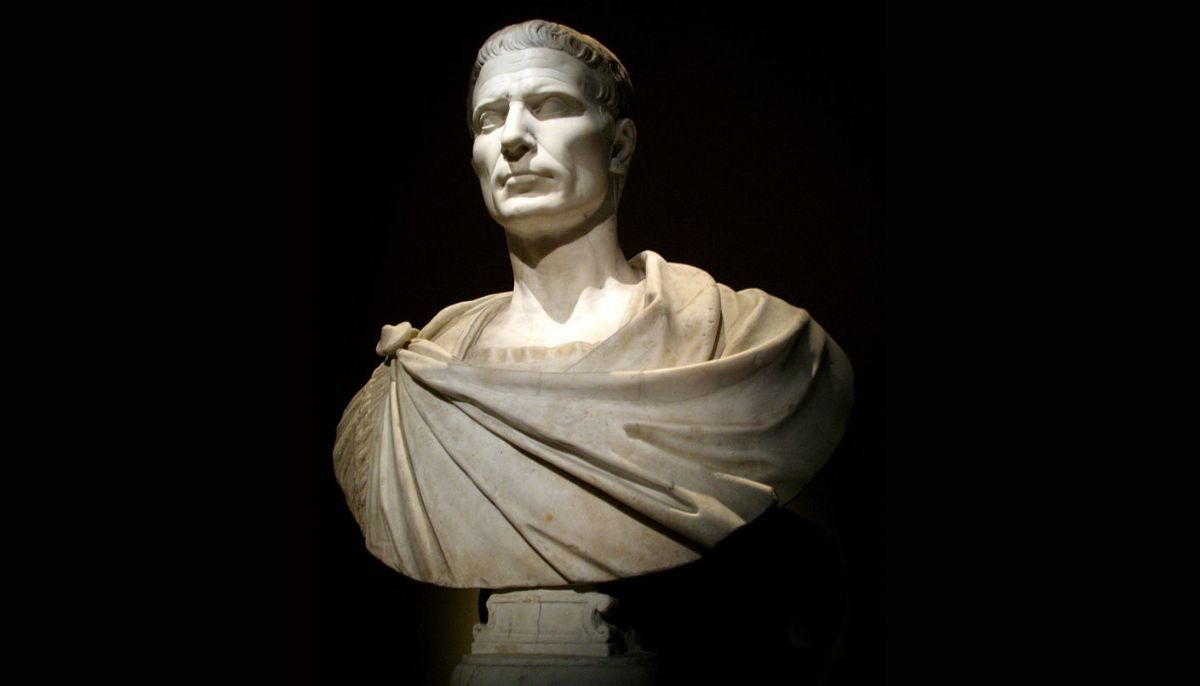What if Julius Caesar hadn’t met his fate on the Ides of March? Imagine the course of history if he had lived to shape Rome’s destiny.
This article will unravel the tantalizing scenario of Caesar’s extended rule. Picture potential new conquests, shifts in political landscapes, and the emergence of a young Octavian, who would become Rome’s first emperor.
Brace yourself for an alternate Roman saga!
1. Political reprisals against the Conspirators
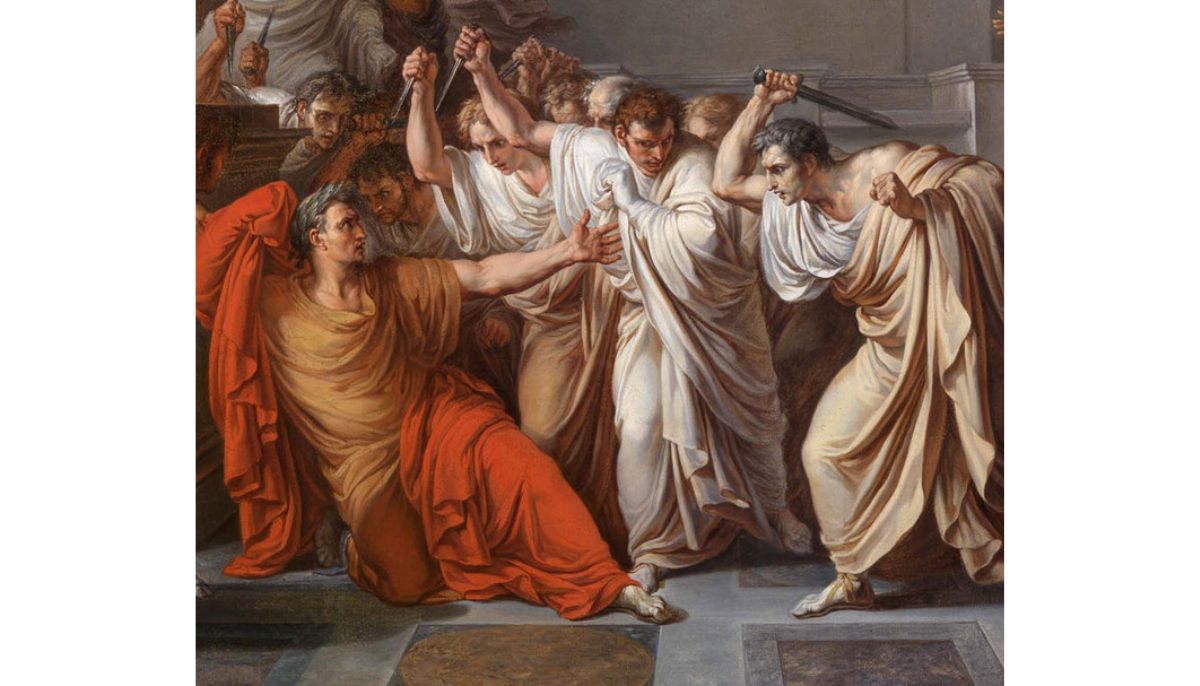
If Julius Caesar had survived the assassination attempt, one of the immediate consequences would have been political reprisals against the conspirators.
While Caesar was known for his leniency and forgiveness, the assassination plot directly attacked his authority and life. It is unlikely that Caesar would have taken such a threat lightly, especially since many of the conspirators were people whom he had forgiven or pardoned in the past.
In reality, the assassins faced a bloody end, mainly in the civil war following Caesar’s death. If Caesar had survived, it is possible that he would have taken a more direct approach to dealing with the conspirators. He would likely have sought revenge and punished those responsible for the attack on his life.
Caesar’s political opponents would also have been wary of his survival, and the conspirators would not have been the only ones to fear reprisals. Caesar’s continued reign would have meant consolidating power and further centralizing authority.
This would have been seen as a threat by those who valued the traditional power structure of the Republic, and Caesar would likely have faced continued opposition and attempts to depose him.
2. No civil war
The assassination of Julius Caesar marked a turning point in Roman history, and its aftermath was a period of turmoil and violence. Civil war erupted between the forces of Mark Antony and Octavian on one side and the conspirators led by Brutus and Cassius on the other.
The resulting wars were bloody and costly and had far-reaching consequences for the future Roman Empire.
Civil war would likely have been avoided if Caesar had not been assassinated. Caesar had built a solid power base in Rome, and his continued leadership would have prevented the power vacuum that led to the conflict.
The new triumvirate?
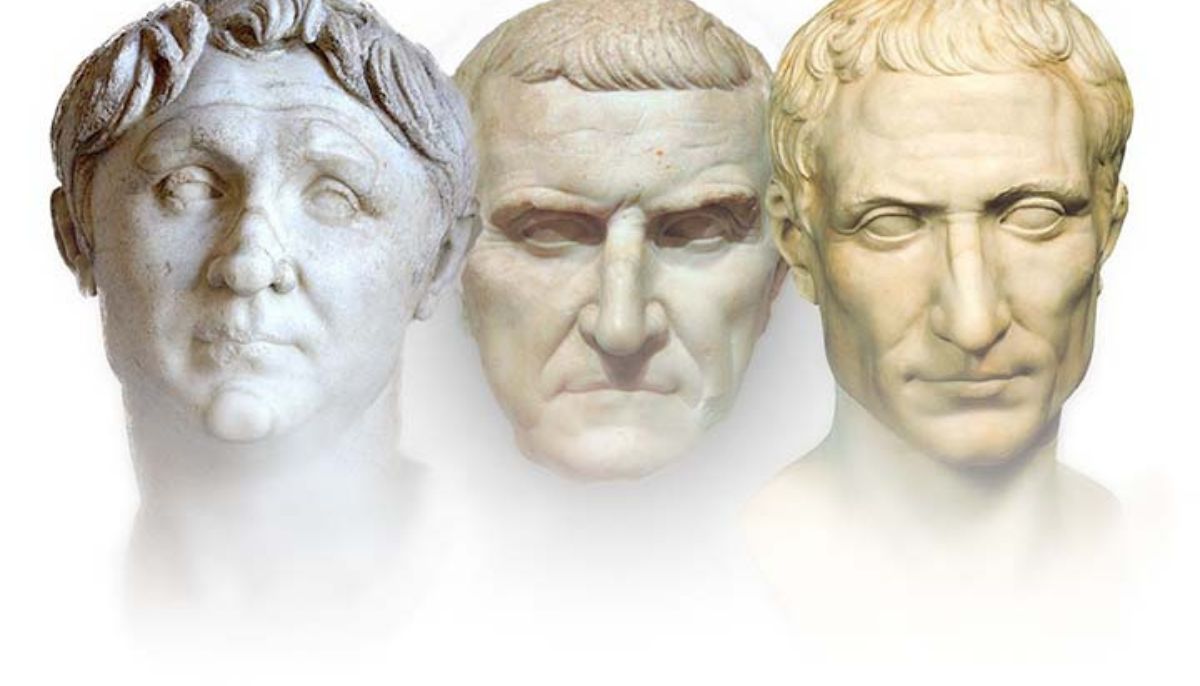
With Caesar still in power, there would have been no need for Octavian and Mark Antony to ally against the conspirators. Octavian, Caesar’s designated heir, would have continued to be groomed for leadership, and Mark Antony would have remained a powerful military commander.
They could have formed a potent ruling triumvirate with Caesar, ensuring peace and stability within Rome.
The avoidance of civil war would have had significant consequences for Rome. The wars following Caesar’s death were costly regarding both lives and resources and had long-term effects on the Republic’s stability.
Avoiding these wars would have allowed Rome to focus its resources on other areas, such as further conquests and expansion.
3. Roman invasion of Parthia
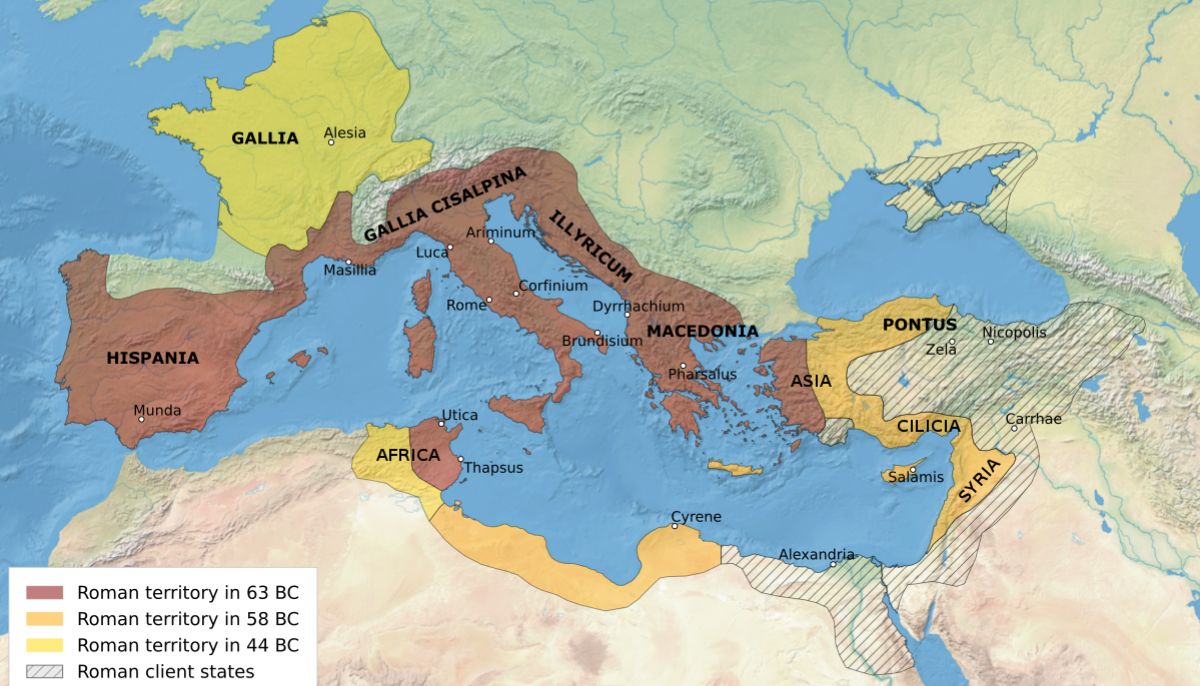
Julius Caesar was a man who lived for conquest and glory, and his ambitions extended far beyond the borders of Rome. At his death, he was planning an invasion of Parthia, a formidable enemy that had previously defeated Rome.
The conquests of Alexander the Great inspired Caesar, and he was determined to outdo Pompey the Great, his former ally turned rival.
The invasion of Parthia would have been a much bigger success than the disastrous campaign of Marcus Licinius Crassus, who had suffered a humiliating defeat against the Parthians.
Caesar was a brilliant military strategist, and he had learned from the mistakes of his predecessors. He would have been well-prepared for the challenges of the Parthian terrain and their formidable cavalry.
Caesar’s idolization of Alexander the Great was well-known, and he had always desired to follow in his footsteps. The successful invasion of Parthia would have been the crowning achievement of his military career and would have elevated him to the status of a legendary conqueror.
While it is impossible to say with certainty what the outcome of the Parthian invasion would have been, Caesar would likely have captured large parts of the east. Even if he had not conquered the entire Parthian Empire, the campaign’s success would have made him untouchable in Rome.
4. Death of Caesar and ascension of Octavian

While the survival of Julius Caesar may have prevented the devastating civil wars that followed his assassination, unfortunately, he would not have ruled forever. Caesar was an aging and ailing leader at the time of his death, and it was inevitable that someone would succeed him eventually.
Octavian, who was Caesar’s designated heir, would have still been groomed for leadership under Caesar’s tutelage. The absence of the power vacuum caused by Caesar’s death may have allowed for a more orderly and peaceful succession.
With Caesar still in power, Octavian would have had more time to learn from his mentor and gain the experience necessary to become an effective leader.
Antony, an influential military leader and a member of Caesar’s inner circle, may have remained in the east to continue the war against Parthia. This would have allowed Octavian to consolidate his power in Rome without the threat of military intervention from his rival.
If the line of succession had been settled before Caesar’s death, there would likely have been a more peaceful union between the various factions within the Roman Republic.
The absence of civil war would have allowed for greater stability and prosperity within the Republic, as resources could have been focused on domestic issues rather than the endless conflicts that plagued the Roman world.
The Weakening of Augustus

While the avoidance of civil wars in the aftermath of Caesar’s survival may have prevented the bloodshed and instability that plagued the Roman world, it is possible that it may have weakened Octavian in the long run.
At the time of Caesar’s death, Octavian was not highly respected and lacked the legitimacy and authority his adoptive father enjoyed.
The civil wars that followed Caesar’s assassination were instrumental in establishing Octavian’s authority and credibility as a leader.
His military successes against Antony and his ability to consolidate power in Rome were crucial in gaining the respect and support of the Roman people and securing his position as the first Roman Emperor.
- See where Augustus lands on our list of the greatest Roman Emperors
Future civil wars
The lack of civil wars may have left Octavian unable to prove his mettle as a leader and establish his authority. This could have weakened his position and left him vulnerable to challenges from rival factions within the empire.
Furthermore, Augustus’s long and prosperous rule brought peace and stability to the Roman world. The establishment of the principate system, which centralized power in the hands of the emperor, allowed for greater efficiency and effectiveness in governance.
Augustus’ reign also saw significant taxation, infrastructure, and administration reforms, which helped improve ordinary citizens’ lives and strengthen the empire.
6. Conquest of Germany
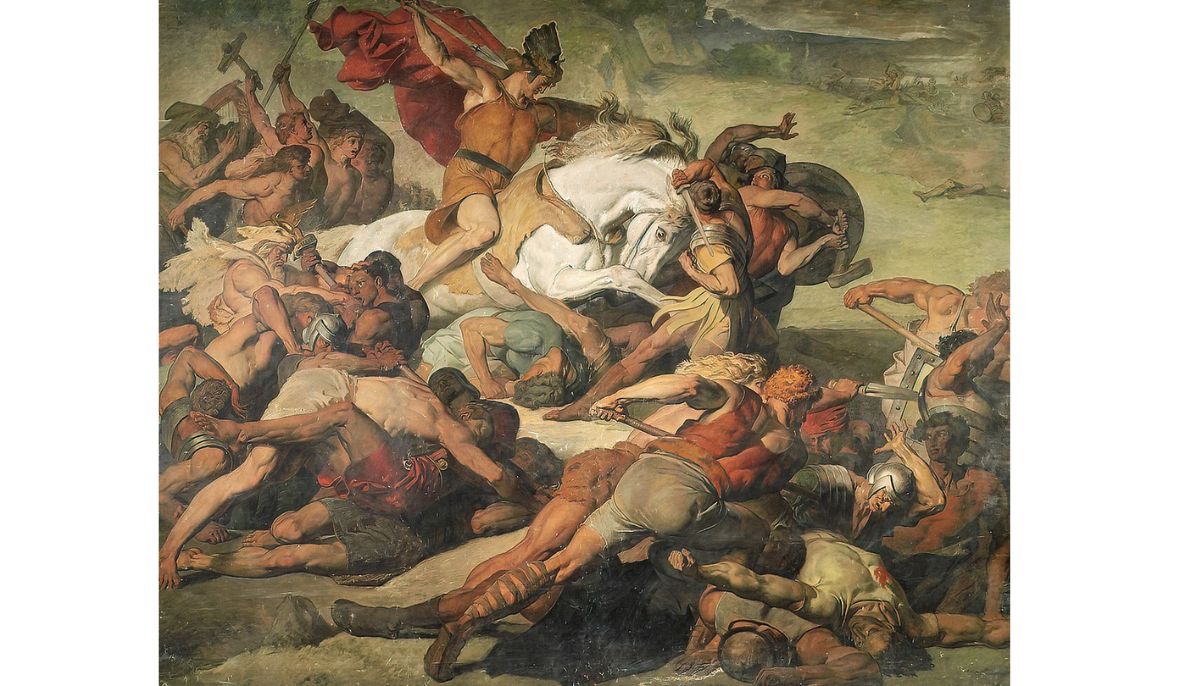
Suppose Augustus had not been weakened by civil wars and had gained more military training and experience under Caesar. In that case, it is possible that he may have attempted to conquer Germany and avenge the losses suffered by Varus at the Battle of the Teutoburg Forest.
Augustus was an experienced but reluctant military commander. He had successful campaigns in Gaul and Spain but preferred to let his right-hand man, Agrippa, take command. Experience in the east under Caesar could have only added to his military prowess.
Additionally, without the drain on resources and manpower caused by the civil wars, Augustus may have been able to amass a larger and more formidable army to launch an invasion of Germany.
If Augustus had been successful in his campaign to conquer Germany, it would have strengthened his rule and solidified Roman control over a vast area of Europe. The conquest of Germany would have expanded the empire’s borders, provided access to valuable natural resources, and secured essential trade routes.
Furthermore, it would have served as a powerful symbol of Roman military might and likely cemented Augustus’ reputation as a great conqueror.
However, it is also possible that an attempt to conquer Germany could have ended in disaster, much like the Battle of the Teutoburg Forest. The terrain and climate of Germany posed significant challenges for Roman armies, and the Germanic tribes were fierce and highly skilled fighters.
An unsuccessful campaign could have weakened Augustus’ rule and left the Roman Empire vulnerable to attack from other enemies.
7. Does everything stay the same?
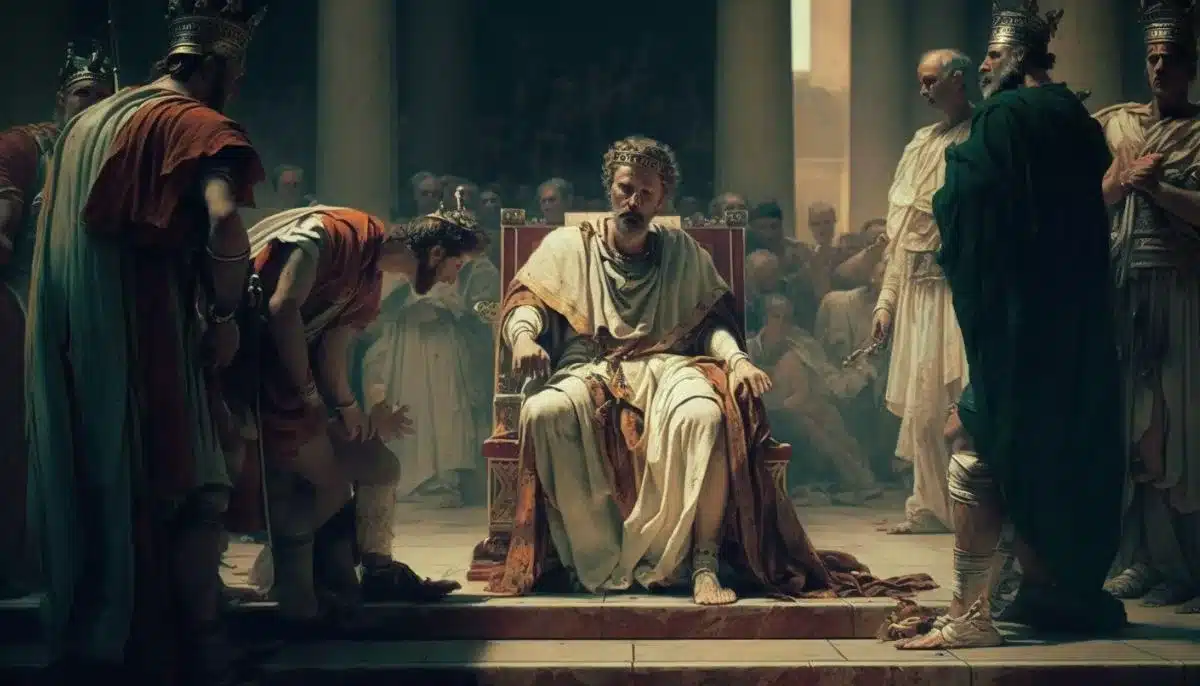
While it is interesting to speculate about what could have happened had Julius Caesar not been assassinated, it is essential to note that much of Roman history and the republic’s decline were likely inevitable.
The Republic was already in a state of crisis before Caesar came to power, with widespread corruption and political turmoil. The Senate was increasingly ineffective and unable to govern effectively, which led to the rise of powerful military commanders like Caesar and, eventually, Augustus.
Furthermore, the expansion of the Roman Republic was already reaching its limits by the time of Caesar’s death.
Emperor Hadrian, who ruled centuries later, recognized this and decided to withdraw Roman forces from some of the empire’s more far-flung territories. The costs of maintaining an empire that stretched across Europe, North Africa, and the Middle East were too significant.
Additionally, Caesar’s death already began the transition from Republic to Empire. The political and social structures of the Republic were already strained and unable to cope with the needs of a growing empire. Augustus, who succeeded Caesar, was able to solidify his power and establish a more stable and centralized government better suited to managing an empire.
Want more alternate history?
